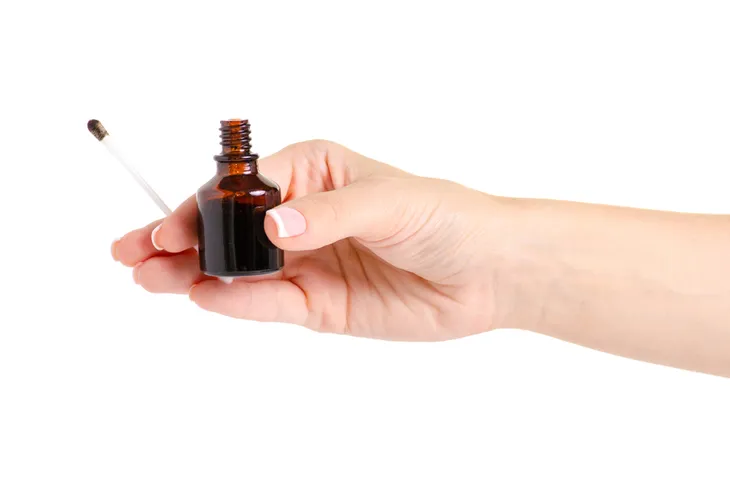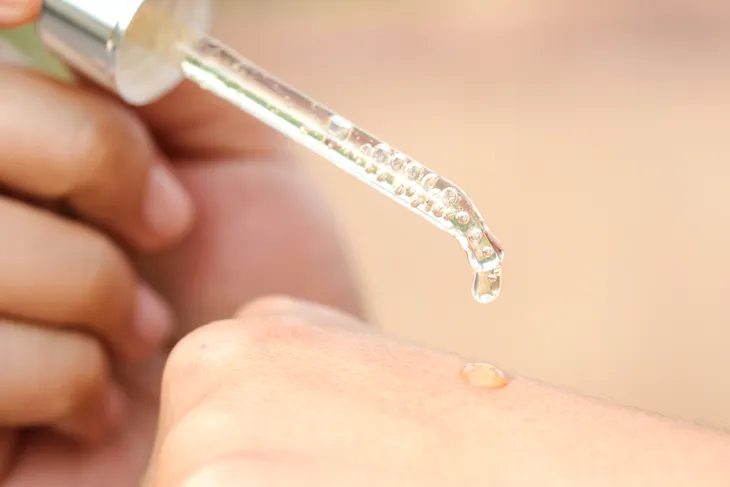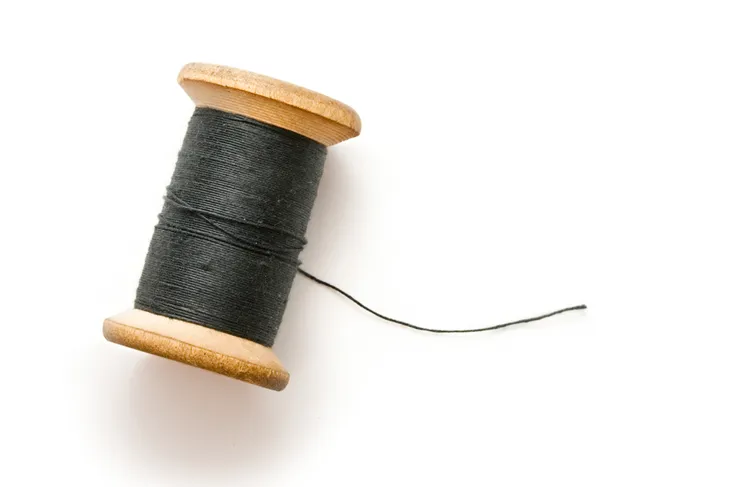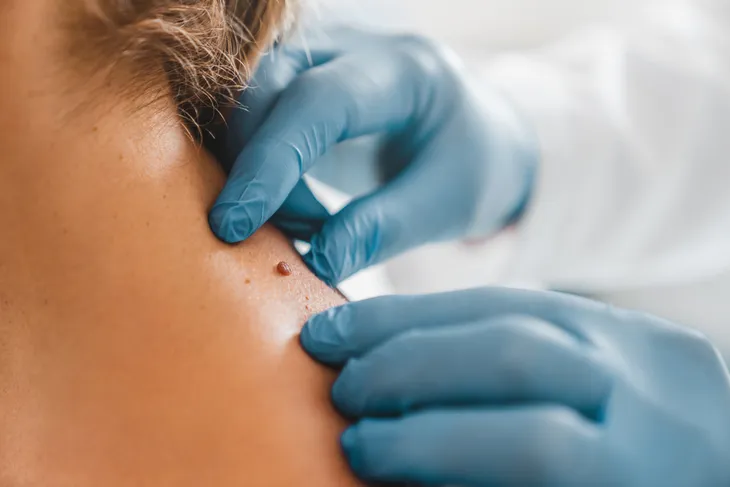- You can purchase skin tag removal kits over the counter at many drug stores and pharmacies
- Various traditional remedies may help remove skin tags, although there’s little scientific evidence that they work
- Consult your doctor if you’re unsure whether your growth is a skin tag or if it feels itchy or painful
Skin tags are small, benign skin growths that commonly appear around the neck, armpits, or groin, although you can get skin tags on any part of your body. There’s not always a clear reason why someone develops skin tags, but they’re more common in people who are overweight, pregnant, or have type 2 diabetes.
These growths aren’t usually painful, but they can sometimes catch on clothing or jewelry. You may also prefer to remove skin tags if they make you feel self-conscious. While it might be tempting to snip off skin tags with a pair of scissors, this can be painful and cause bleeding or infection. Instead, consider one of the following ways to remove skin tags at home using over-the-counter solutions or traditional remedies.
Skin Tag Removal Creams
You can purchase skin tag removal creams over the counter that get rid of skin tags using a process called chemical cauterization. This process involves destroying the skin tag tissue until it falls off on its own without the need for surgery.
Skin tag removal creams can be effective, but choosing a safe product is essential. A pharmacist can advise you on the most suitable skin tag removal cream for home use. You’ll need to leave most creams on overnight and cover the area with a bandage or another dressing. Always follow the instructions included in the package.
Freezing Kits
Cryotherapy is a treatment that involves cooling the skin tag tissue using liquid nitrogen. Eventually, the treatment destroys the unwanted skin cells, and the skin tag drops off, although you may require several treatments to achieve the desired results.
Doctors use cryotherapy to remove skin tags, but you can also buy home freezing kits from pharmacies if you prefer to remove your skin tag yourself. It’s important to follow the instructions closely when using a home freezing kit and protect the surrounding skin with a layer of petroleum jelly.
Skin Tag Removal Bands
Skin tag removal bands are tiny rubber bands that sit tightly around the base of the skin tag. They cut off the skin tag’s blood supply until it falls off naturally, and you can purchase removal band kits with a cone applicator to help you get the band in the right place.
Removal bands can be a good option if you don’t want to use chemicals on your skin. However, the bands can take a while to work, and they’re not suitable for people with rubber allergies.
Skin Tag Removal Patches
There are various types of skin tag removal patches available. Some work similarly to removal bands, applying pressure to the base of the skin tag to cut off the blood supply until it withers and falls off.
You can also purchase removal patches containing salicylic acid, an exfoliant that dries out the skin tag until it drops off. However, salicylic acid is an irritant and could cause the surrounding skin to become itchy or inflamed. This is particularly uncomfortable for people with sensitive skin. Homeopathic patches are also available, although there’s no evidence that the natural ingredients in these patches are effective.
Apple Cider Vinegar
There’s little scientific evidence to suggest that apple cider vinegar effectively removes skin tags, but some people claim to have achieved good results. Applying a cotton ball soaked in apple cider vinegar to your skin tag twice a day for around 10 minutes could encourage it to drop off naturally.
Using apple cider vinegar to remove skin tags around the eyes isn’t recommended because it is highly acidic. It can also cause skin irritation in some people, so it’s essential to stop the treatment if it makes your skin red or sore.
Iodine
Iodine can break down skin cells, and some anecdotal data suggests that applying it to skin tags can encourage them to drop off. However, there’s scant scientific evidence for iodine as an effective skin tag treatment.
If you want to try it, use a cotton bud to apply a couple of drops of liquid iodine to the skin tag twice a day, taking care to avoid the surrounding skin. Iodine can cause skin irritation, so it’s a good idea to apply a barrier like petroleum jelly to the area around the skin tag.
Tea Tree Oil
Tea tree oil is a natural antiseptic and a common ingredient in many skincare products for acne-prone skin. Although there aren’t any studies on the use of tea tree oil to remove skin tags, some people find it helpful. You can apply tea tree oil to your skin tag by putting a few drops of the oil on a cotton ball and taping it to the affected area up to three times a day.
Some people find that tea tree oil irritates their skin, so stop the treatment immediately if you notice redness or discomfort.
Garlic
Garlic is a traditional treatment for removing skin tags, making it a suitable option for people who wish to avoid applying chemicals to their skin. It has natural anti-inflammatory properties, which some people believe encourage skin tags to fall off.
You can treat a skin tag using garlic by crushing a fresh clove and using surgical tape to secure it over the affected area overnight. Wash the garlic off in the morning and reapply it daily until the skin tag shrinks and drops off.
Banana Peel
Banana peel contains natural enzymes and antioxidants that could have a drying effect on skin tags, and it’s a cheap and safe ingredient to apply to your skin. Simply cut a piece of banana peel to the correct size and place it flesh side down as a patch over your skin tag, securing it with a bandage or surgical tape.
It’s best to treat a skin tag with a banana peel at night, as it could get in the way of your activities during the day. You may need to apply the peel for several nights before potentially seeing any results.
Vitamin E
Vitamin E is an antioxidant commonly used in anti-aging skincare products. There’s little scientific data to support vitamin E as a skin tag treatment, but there is some anecdotal evidence that it could encourage skin tags to dry out and drop off.
You can purchase vitamin E online and over the counter at a pharmacy. Massage a few drops of the oil into the affected area each day until the skin tag dries and falls off.
Thread
Doctors sometimes use a technique called ligation to remove skin tags, which involves tying surgical thread tightly around the base of the skin tag. This stops blood from flowing to the tissue and causes it to drop off in a similar way to skin tag removal bands.
You can try using this method at home by tying a piece of clean thread around the bottom of the skin tag. However, do not attempt ligation at home if you have a skin tag near your eye.
When to See a Doctor
It’s essential to understand when you can remove skin tags safely at home and when to consult a healthcare professional. You should never use home remedies, including over-the-counter skin tag removal kits if your skin tag is near your eyes or genitals. You should also book an appointment with your doctor if your skin tag is painful, itchy or you’re unsure whether it’s a skin tag or another type of growth like a mole or wart.















